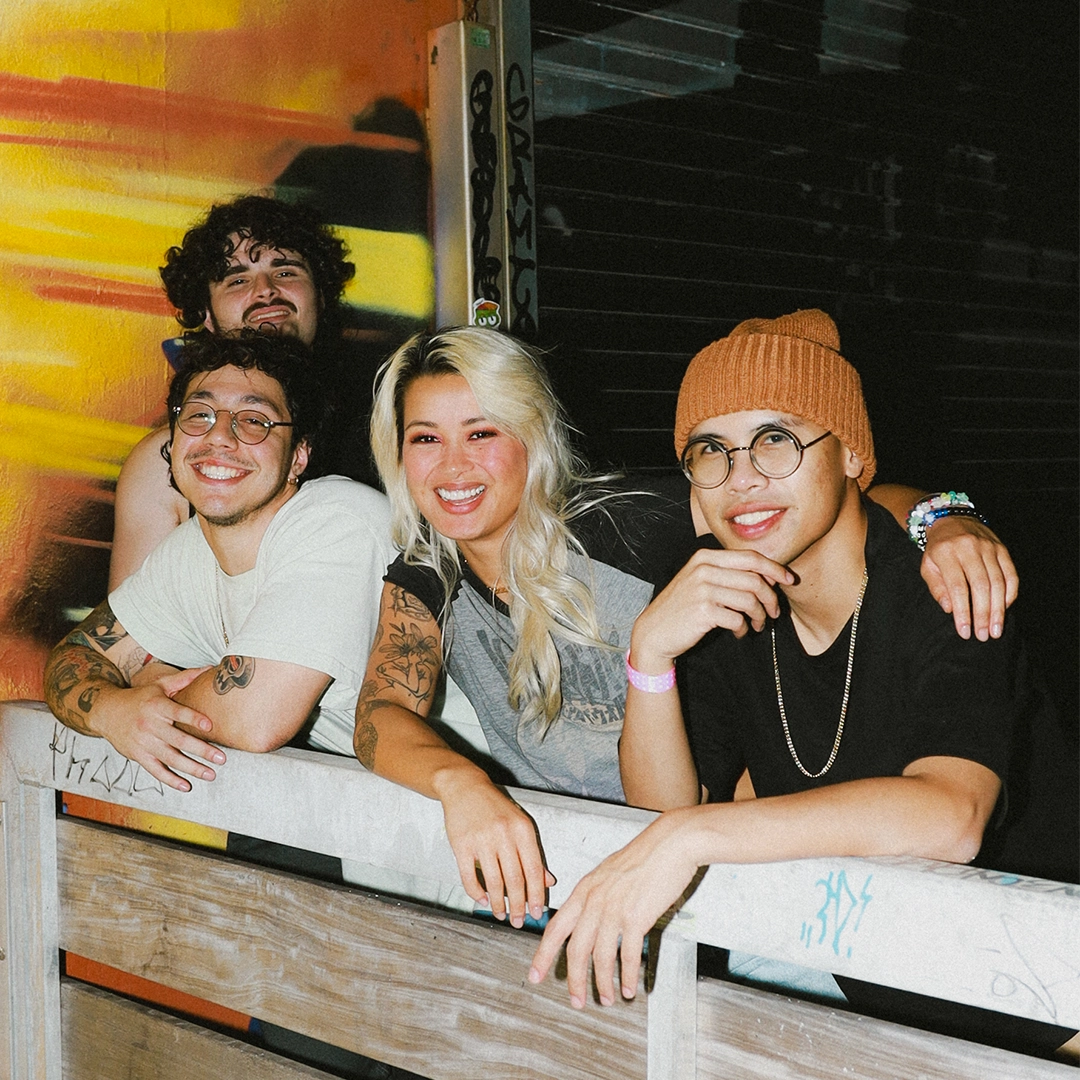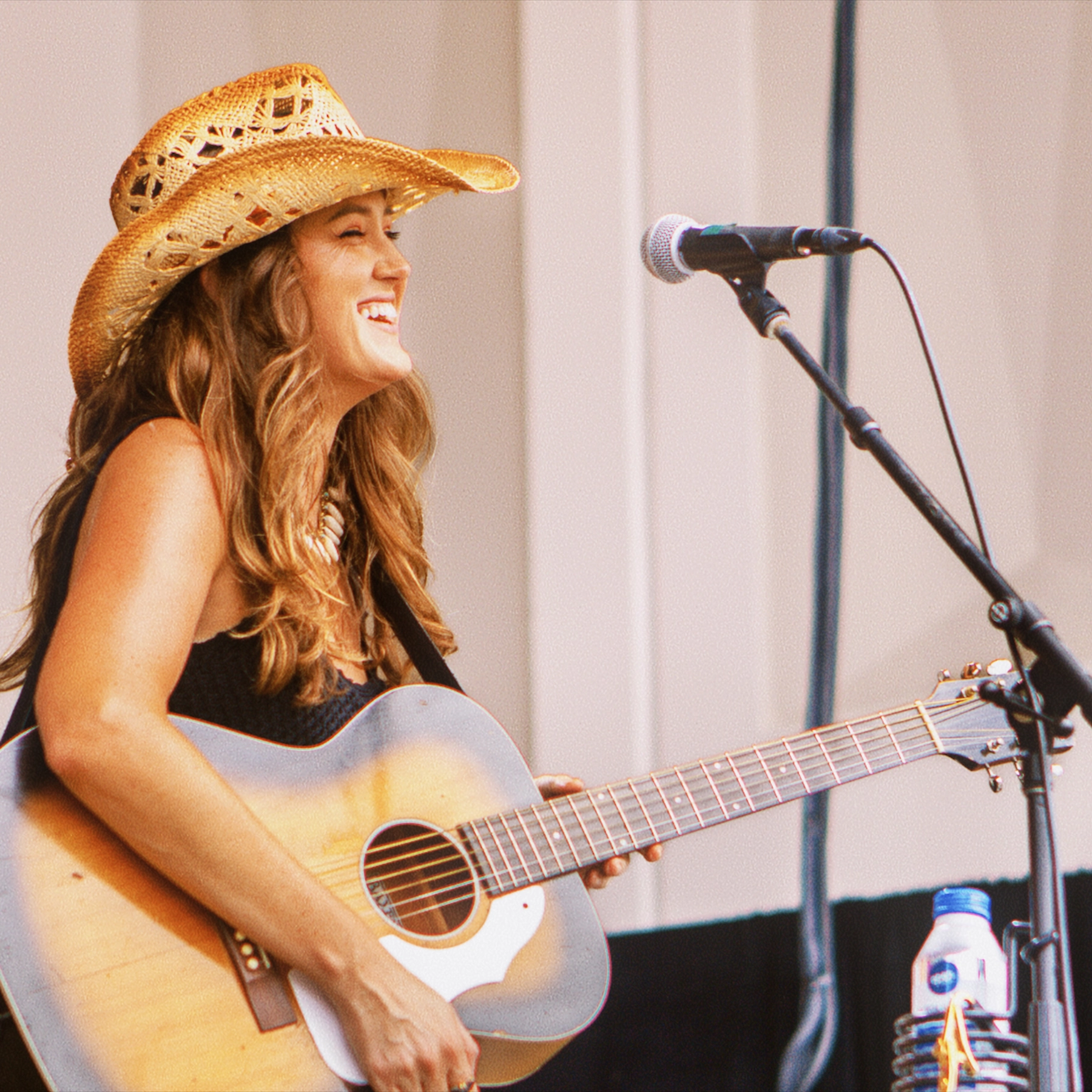by Steve Dollar | February 9, 2024
Bill Orcutt: Miami Iconoclast to Guitar Quartet Maestro
Bill Orcutt captivates audiences with his genre-defying album "Music for Four Guitars," offering insights into his remarkable musical evolution.

Last April, viewers of NPR Music’s popular YouTube channel got a jolt. The day’s “Tiny Desk” Concert series, a casual showcase for rising indie artists and Taylor Swift alike, featured four electric guitarists assembled in a semi-circle, making a joyous racket. The “rowdy, giddy and shreddy” pieces, to quote producer Lars Gotrich, were composed by Bill Orcutt, and his freshly minted guitar quartet. The four guitarists amplified a genre-smashing approach the artist has intuitively followed for decades.
The button-downed cultural precincts of NPR, even on the musically expansive “Tiny Desk,” might be one of the last places Orcutt’s oldest fans might ever have expected to hear him—let alone the 110,000-plus viewers who watched the clip.
“We had a hot minute,” Orcutt says, “of being very popular on social media.”
A lifelong iconoclast, the musician made his reputation three decades ago as an underground anti-hero. The Miami native torqued eardrums throughout the 1990s as the guitarist of Harry Pussy, provocateurs of the city’s noise scene and centered around a legendary (and now-defunct) Little Haiti dive bar called Churchill’s. Then he gave it all up and moved to San Francisco, ignoring the guitar for years before he started up again in 2009, this time focused on acoustic guitar. It was a practical choice. He had kids now, and neighbors and a steady tech gig.
“You know, I’m probably, at the heart of it, just a contrarian who wants to disagree with whatever you’re saying either way,” Orcutt says, reclining on a sofa during a recent Zoom conversation. “That’s it. I’m always trying to find my own thing, and if other people dislike it, or are somewhat contemptuous of it, that’s even better. The sweet spot for me is to find something that I love and other people hate.”
What happens when other people love it, too?
“Harry Pussy had its moments.” Orcutt continues. “We cleared a lot of rooms. I’ve cleared a lot of rooms solo, as well. But it’s also nice to play things that people are really into.”
The interest generated by “Music for Four Guitars” was the last thing Orcutt expected. “I didn’t think it would be popular,” he says. “It was unlike anything I had done before. I thought I knew what people might want to hear from me. The quartet stuff wasn’t that.”
Orcutt has put out about 40 albums in the past 15 years, and almost half as many cassette-only recordings—many for his own label, Palilalia (the name refers to a speech disorder marked by compulsive repetition, although Orcutt says he chose it largely out of convenience. “It was a domain name that was available.”) Some albums are solo guitar, some are collaborations with other musicians, and many are immediately notable for their titles, which evoke their playful associations: “A New Way To Pay Old Debts,” “Reasons I Am Great,” “Colonial Donuts,” and “The Anxiety of Symmetry.”
He’s a great guitarist but he’s a conceptual artist, almost like a sculptor but his medium happens to be guitar and sound
– Shane Parish
“Four Guitars” evolved out of an earlier project involving multiple players that never came together, arising through a long gestation. “It took me seven years,” Orcutt says. “I don’t know exactly how it relates to what I have done before, but it’s interesting. It was very different, but I just accepted it and it turned out to be the most popular thing I ever did.”
The piece was released on a 2022 album titled “Music for Four Guitars,” which features a multi-tracked Orcutt playing all four parts himself. The touring quartet came together later, featuring two other Floridians in Ava Mendoza (now based in New York) and Shane Parish (who lives in Athens, Ga.), along with Wendy Eisenberg (also New York-based). Since the tour’s debut last spring, Orcutt has played internationally with the group, performing at festivals and club dates, with more on deck. A live recording is due in March.
“It doesn’t feel like we’re all trying on Bill costumes for Halloween,” says Eisenberg, who, like Orcutt, writes and performs in ways that blur genre distinctions. “It feels that through the structure of the song he created each of us can bring our feel to it, and that shows the strength of the material because all of us play so differently.”

Eisenberg refers to Orcutt as the “elder jester” in the quartet’s ad hoc stage family and notes how his vernacular as a player tends to disrupt references to 1960s minimalism—the repetitive, hypnotic patterns popularized by composers like Steve Reich and Terry Riley—that the music’s shifting lines call to mind: “He plays like an old bluesman,” Eisenberg says. “There’s something so classic about his sense of timing.”
A key element of the sound is that Orcutt plays guitar with two strings removed. While playing drums in one of his early Miami bands, the Trash Monkeys, his guitar “fell into disrepair,” he explains, and was randomly left with only four strings. He liked it. “There’s a rhythmic thing that is specific to what I do, because of the nature of playing with those strings missing.”
Parish, who hails from Miami and Fort Lauderdale, took a shot at describing the musician’s unorthodox nature. “He’s a great guitarist but he’s a conceptual artist, almost like a sculptor but his medium happens to be guitar and sound,” says Parish, who originally transcribed the pieces to be tackled by the quartet. “There’s a real tendency toward melodies that have a vibe—a lot of emotional and epic qualities to it. It’s the kind of stuff that grooves and makes you feel cool when you listen to it.”
Nearly 62, Orcutt retired from his tech job last summer. He had hoped to be laid off with a buyout, but no luck. “I was 10 years at that company. I was like, ‘Man, these people owe me.’ I couldn’t hang out anymore.”
More tour dates await the quartet, but the protean artist isn’t thinking too far ahead of the moment.
“I’m trying to ride this wave while it’s going,” Orcutt says. “The success of the record begs the question: Do I want to write another one? So far, I haven’t tried. I have enough things to keep me busy.”





